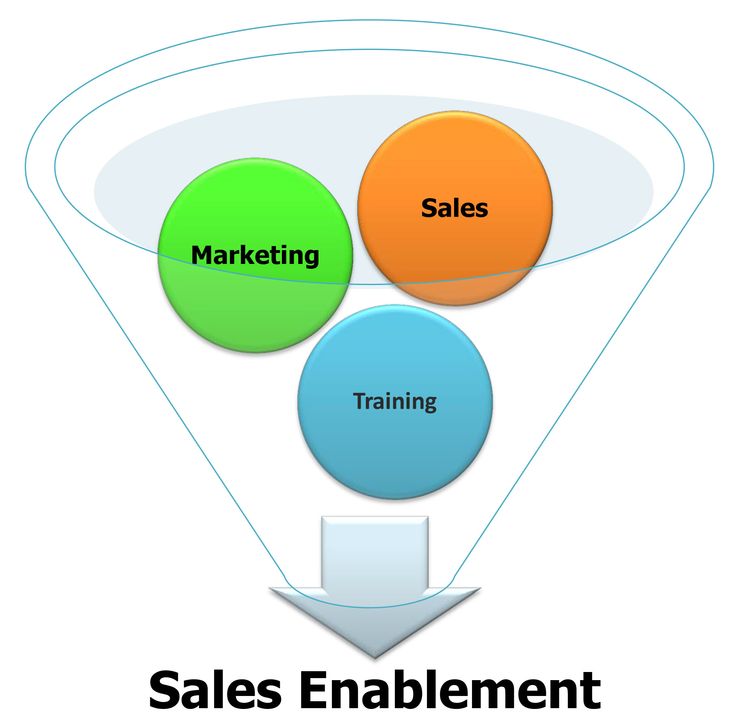Knowledgeable, skillful, helpful, and easily accessible are some of the major traits and successful elements of a sales rep. Combination of all these elements of a strong and compelling bunch of professionals that possess both traditional leadership skills and sales expertise can be termed as a killer sales enablement team. It is all about a mindset, an evolving concept that acts a driving force for sales ops and marketing that promotes customer acquisition and ultimate revenue growth for any given business entity.
An incapable and poorly organized sales enablement team might lead to damage your customer acquisition efforts and thus result in a dip in sales conversion rate and a decrease in revenue generation growth. This is an alarming situation for any business to run. Therefore, business owners need to be little cautious in determining and identifying the right elements to be implemented in building up an efficient, skillful, and reliable sales enablement team, which will eventually help them to accelerate their business growth.
To supercharge the high growth in revenue generation, many companies are deploying sales enablement function with incredible results. How do you deploy this function that will change the course of your business? What are some of the salient key points to be taken care of while setting up a super successful sales enablement function?
Here are the five keys to deploying an effective sales enablement function: –
1. Knowing Objectives
Sales enablement must be aware of the desired goals and objectives that an organization is trying to achieve. They must be very clear on the outcomes, such as increasing revenue, generating more pipeline, acquiring customers, delivering lifetime value to the customers etc. The team should collectively work for achieving goals and objectives that specific, measurable, achievable, realistic and timely. They must be scientific and methodical in determining the objectives and work accordingly to get the expected results.
2. Knowing Customers
As much as it is important for the sales team to be customer focused the sales enablement team equally needs to become more customer-centric as well. Often times, it has observed that sales enablement teams are focused on sales team’s requirements rather than the customer. In my personal view, they must learn to be both customer focused and also sales team’s requirements focused so that the information provided to sales team becomes effective and is used much more efficiently throughout the entire sales cycle. Since the ultimate goal is to deliver the best experience to a prospect or buyer, sales enablement must know them inside and out. They must understand customer’s pain points and challenges and must be able to recognize buying signals and trigger events that are related to that prospect’s problems.
3. Defining Strategy and Execution Methods
Sales enablement plays a vital role in defining strategies that help to identify and collaborating with stakeholders in sales and marketing, understand current benchmarks and baselines to find gaps and opportunities, and putting a plan in place that can deliver immediate and long-term results.
4. Practicing Strong Communication
The sales enablement leaders are responsible for building strong communication between sales reps, sales managers, and sales leaders to ensure the growth and success of sales team. They establish a regular cadence for communication with different parties across the company in a variety of ways through one-on-one conversations, team meetings, email messages, or conference calls. Doing so, they promote opportunities for salespeople to get 360 evaluation and feedback, such as peer-to-peer learning and sales coaching.
5. Training & Knowledge Reinforcement
Sales enablement invests a good amount of time and energy in providing training on the following topics: –
· Product training
· Sales training
· Tools/technology training
· Market and industry training
· Critical thinking and problem solving
They are the people who continuously check for reinforcement of knowledge and training to reps and thereby keep them fresh and up-to-speed on the latest product releases or service updates, and sales practices. Last but not least important is to help reps to define the strategy and steps to increase their efficiency and effectiveness in the whole sales cycle.
6. Creating Quality and Optimizing Content
It’s the job of sales enablement to create the right type of content and make it easily available for reps to access and utilize them in the most appropriate way to drive more deals. By creating quality and more valuable content, sales enablement is helping reps stand out in the noise, establish expertise, and build trust with prospects faster. They should publish consistent content and build tools that are repetitive in nature that enable reps to save time and make them more productive and efficient in performing their actual sales activities. The team should develop case studies that speak to every type of customer, whether it’s by industry, company size, or specific use case. Sales enablement must optimize content utilization by diversifying various content promotion channels, such as emails, social media, phones etc.
7. Enforcing Right Tools and Technology Support
It’s also sales enablement’s job to first establish a process and then to adopt tools and technology to execute against the process. Leveraging the latest tools and technology can be approached correctly to avoid detrimental effect on a well-established process. Hence it’s the duty of the sales enablement to choose the relevant modern technology that streamlines processes, saves time and delivers incredible results. Some of the key categories of technology that sales enablement can enforce are CRM, marketing automation, sales intelligence and automation, communication solutions, CPQ (configure, price quote) and content/knowledge management.
8. Streamlining and Improving Workflow
Sales enablement identifies and analyzes problems, introduces and streamlines a process workflow that improves productivity. Since the key objective of sales enablement is to increase a rep’s active selling time, hence integrations are very important. They make sure that reps should spend less time going back and forth from tool to tool. Having tools that automate and seamlessly integrate with all the other tools reduces time spent on admin related tasks, like logging activity, transferring data, and finding the right content.


